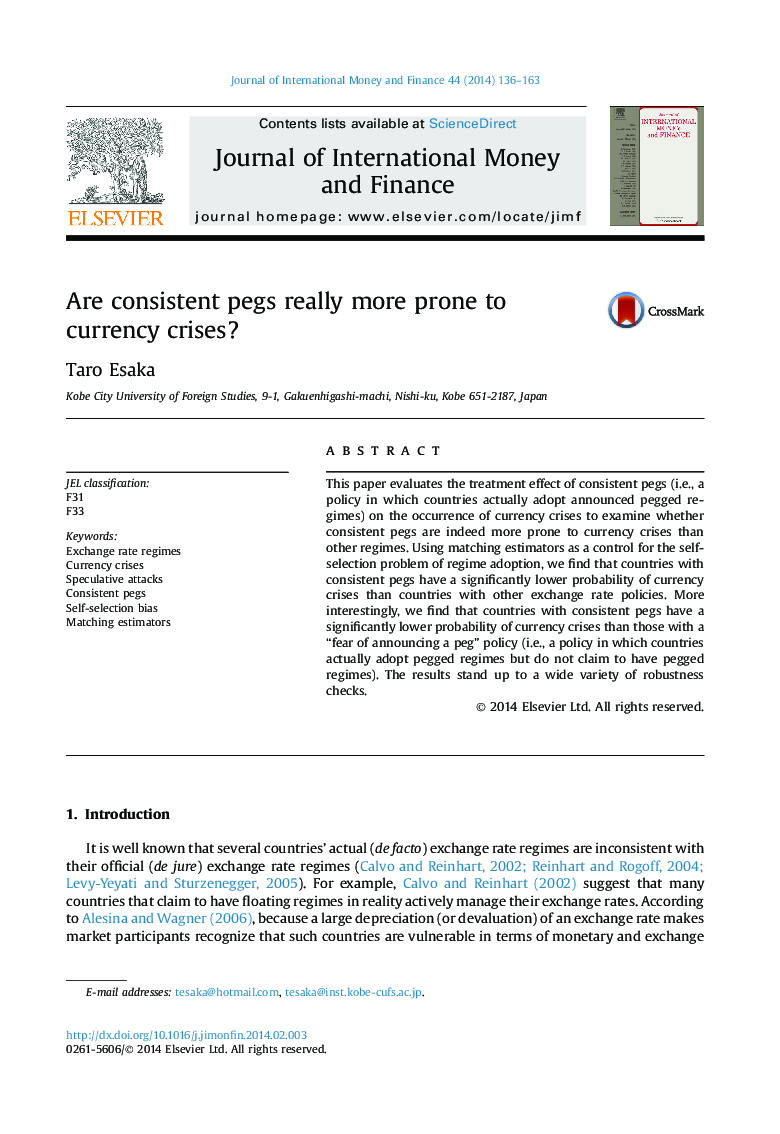| Article ID | Journal | Published Year | Pages | File Type |
|---|---|---|---|---|
| 7365783 | Journal of International Money and Finance | 2014 | 28 Pages |
Abstract
This paper evaluates the treatment effect of consistent pegs (i.e., a policy in which countries actually adopt announced pegged regimes) on the occurrence of currency crises to examine whether consistent pegs are indeed more prone to currency crises than other regimes. Using matching estimators as a control for the self-selection problem of regime adoption, we find that countries with consistent pegs have a significantly lower probability of currency crises than countries with other exchange rate policies. More interestingly, we find that countries with consistent pegs have a significantly lower probability of currency crises than those with a “fear of announcing a peg” policy (i.e., a policy in which countries actually adopt pegged regimes but do not claim to have pegged regimes). The results stand up to a wide variety of robustness checks.
Keywords
Related Topics
Social Sciences and Humanities
Economics, Econometrics and Finance
Economics and Econometrics
Authors
Taro Esaka,
